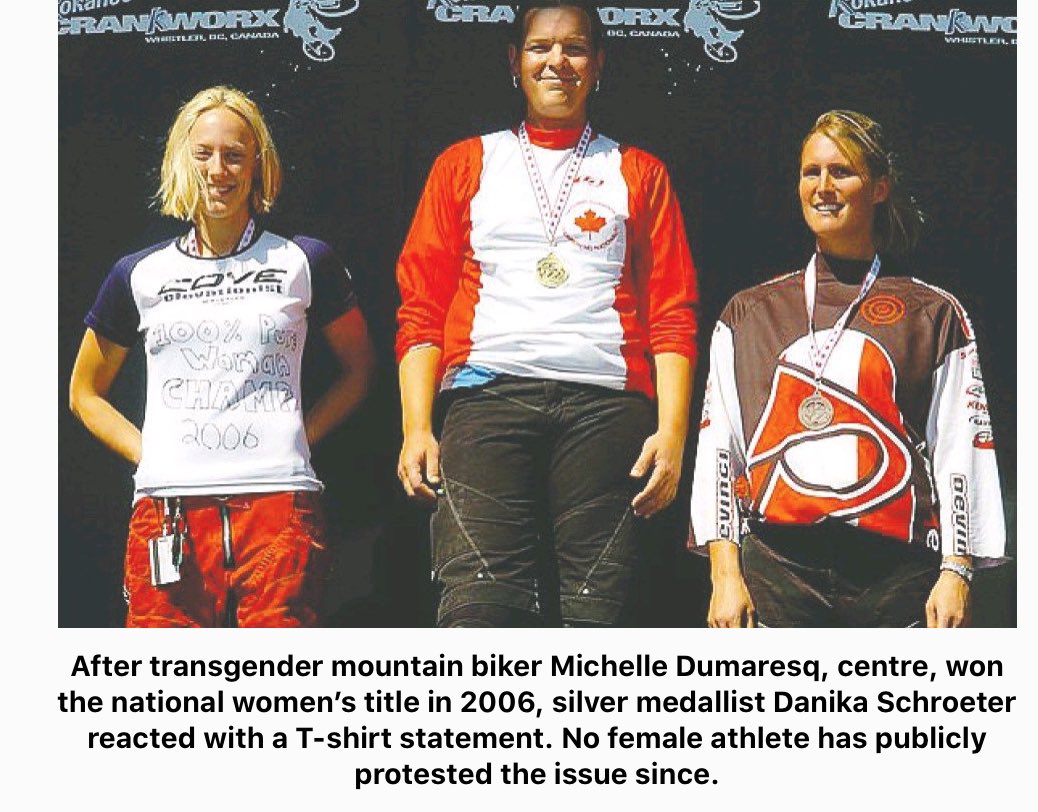Women's Sports No Longer
"Usually everyone claps, everyone is yelling and cheering when someone wins a race. Lia touched the wall [in the 1,650-yard freestyle swim] and it was just silent in there.""When [Penn swimmer] Anna [Kalandadze] finished second, the crowd erupted in applause."Sport News Website OutKick
"Pretty much everyone individually has spoken to our coaches about not liking this. Our coach [Mike Schnur] just really likes winning. He’s like most coaches. I think secretly everyone just knows it’s the wrong thing to do.""When the whole team is together, we have to be like, ‘Oh my gosh, go Lia, that’s great, you’re amazing.’ It’s very fake."Anonymous Penn State swimmer
 |
| Transgender swimmer Lia Thomas has been setting new records |
University of Pennsylvania swimmer Will Thomas, a tall, strapping man, distinguished himself as an athlete from 2016 to 2019 on the second-team All-Ivy League. And then something happened to convince this man that he was really a woman, after all. He is now a recognized transgender woman qualifying to compete in women's sports, and he is known as Lia Thomas.
Since his affirmation as a woman Lia has suddenly been transformed in other ways, as a swimming superstar, smashing records wherever he competes. Recently at the Zippy International in Akron, Ohio, last year's 200-yard freestyle gold medal time in the NCAA finals was bested by Thomas by seven seconds. Thomas came first in the 500-yard by more than 14 seconds, and won the 1,650-yard by 38 seconds.
Competing as a man among other men, Will Thomas was a fine athlete but no big-time winner. Now, as a woman, competing against natal women, he suddenly sweeps the podium winning gold while elite female athletes make do with silver and bronze. Lest a murmur of dissatisfaction escape the lips of born-female contestants the edifice of worship at the altar of transgenderism wreaks its vengeance on the careers of aspiring female contestants.
There was a published report of Thomas post-200-yard boasting that it "was so easy, I was cruising". Granted anonymity, a teammate spoke to sports news website OutKick that women contestants were weeping with frustration on the pool deck in the knowledge that their level of womanly strength, endurance and capability would never out-compete the transgender Thomas.
Anonymity, needless to say, in view of the fact that female athletes are cautioned not to complain to the media, airing grievances about gender-related conceptions of unfairness in competition. Back in 2006, Canadian downhill mountain bike racer Danika Schroeter stood on the podium after a race that transgender biker Michelle Dumaresq won.

She was silent when awarded her silver medal, but the T-shirt she wore said it all: "100% Pure Woman CHAMP 2006". In response to which she was given a three-month suspension. Which had the effect of silencing her to the extent that she withdrew from competition altogether, her career in pieces of shattered aspiration and confidence.
She had quite the record as a female sport competitor, at the top of her game; Canadian women's champion in 2003, 2004 and 2006 among other conquests attesting to her skill and competence. But that was before the zeitgeist of the times; transgender women competing in women's sports and sweeping up the medals, leaving the dredges for women.
No one wants to risk being called out as transphobic, so no protest movement appears to have materialized. Yet. Women are silent in public, seething inwardly at the social flavour of the times. Inexplicably, while it is known and recognized even by those with official status at elite levels in the sport world who argue for inclusion of trans women in women's sports, that natal males have a post-puberty physical advantage over women, its impact is set aside as inconsequential.
Recently, the Macdonald-Laurier Institute published a report titled "Fair Game: Biology fairness and transgender athletes in women's sport" written by Jon Pike, political philosopher specializing in the philosophy of sport at Open University in the U.K.; Emma Hilton, developmental biologist at University of Manchester; and Leslie Howe of the University of Saskatchewan who publishes extensively on inclusion and ethics in sports.
"The question is whether there is a justification for excluding transwomen from the protected category of women's sport. This is about rights within sport, as opposed to access to sport." It examines principles of "fairness, safety and inclusion", finding no scenario where fairness and safety for women can be guaranteed with the acceptance of trans-identifying male inclusion.
The report illuminates that the male musculoskeletal advantage is proven and disparate where performance differentials between women and natal males range from 11 percent in swimming to 120 percent in rugby, whereas, by comparison, illegal doping confers under a ten percent advantage. The report concludes that the fairest and safest solution consistent with trans inclusion would be a competitive category open to trans female competitors while preserving female competition in sport closed to trans females.
Labels: Female Sport Competition, Solution: Exclusion, Trans Female Sport Competitors, Unfair Competition

0 Comments:
Post a Comment
<< Home